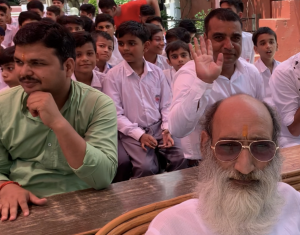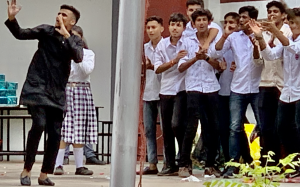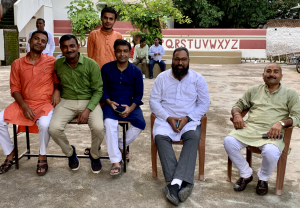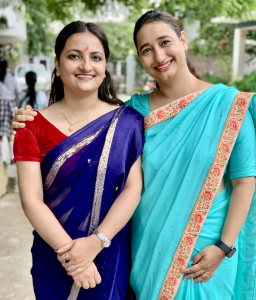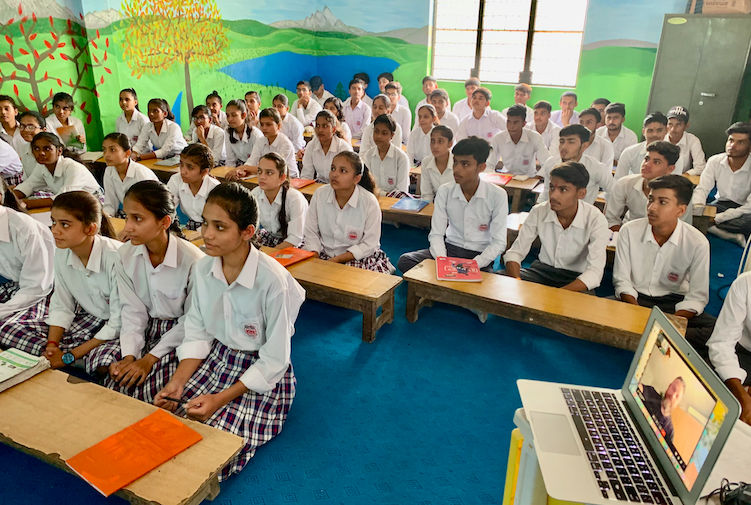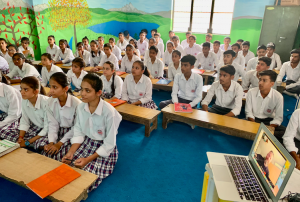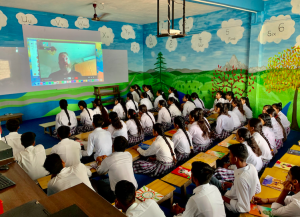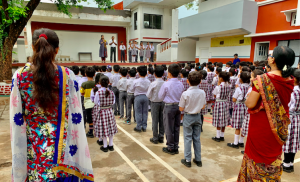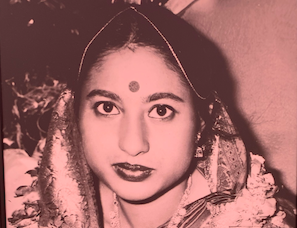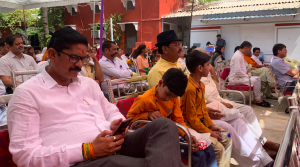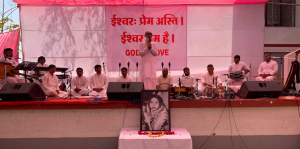
by Ron Hjertstedt | Sep 29, 2022 | School News, Student Corner

The Indian rupee has been on a downward spiral, and today it hit a record low of 81.26 against the US dollar. The rupee is down nearly 6 per cent since January this year.
Union Finance Minister, Nirmala Sitharaman, recently said that the rupee is relatively better-placed than other global currencies against the greenback.
The value of the Indian rupee to the US Dollar works on a demand and supply basis. If there is a higher demand for the US Dollar, the value of the Indian rupee depreciates, and vice-versa. If a country’s import is more than it’s export then this kind of condition takes place. The rupee’s fall these days is mainly due to high crude oil prices, a strong dollar overseas, and foreign capital outflows. As money flows out of India, the rupee-dollar exchange rate gets impacted, depreciating the rupee.
How does a weak rupee impact you and the economy?
Since India mostly depends on imports (including crude oil, metals, electronics to name a few), the country makes payments in US dollars. Now if the rupee is weak, it has to pay more for the same quantity of items. In such cases, the cost of raw materials and production goes up which gets passed on to the consumers.The falling rupee’s biggest impact is on inflation. The global crude prices have sustained at over $100 a barrel since Russia’s invasion of Ukraine in February this year. High oil prices and a weaker rupee will only add to inflationary pressures in the economy.
Last week, RBI Deputy Governor, Michael D Patra, intervened and said, “We will stand for its stability and we are doing it. We are there in the market and we will not allow disorderly movement of the rupee. We have no level in mind, but we will not allow jerky movement. That is for certain.”
Depreciation in the rupee does not only affect your foreign travel. It can also pinch your pocket with higher fuel prices, higher interest rates on your loans, and so on. If the rupee continues to depreciate, then to cover the economy, the RBI increases its repo rate due to which a common man’s loan interest increases. It also results in increase in petrol prices. For example, if a taxi driver purchases petrol for ₹115 per litre one day, then after the rupee depreciates further,
he might get the same quantity of petrol for ₹120 per litre.
Article written by Shivansh Agrahari on behalf of the SNHS Student Website Team.

by Ron Hjertstedt | Sep 5, 2022 | News Flash!, Student Corner
 Teachers. They the light of the world.
Teachers. They the light of the world.
A beacon in the dark, and the hope that gives us strength to survive. Teachers add value to our character and make us the ideal citizens to make a better country. Teachers are the building blocks of our lives. They are the ones who motivate the students to do better in every way. Teachers are the builders of a better future.
The bond between a teacher and student is like a potter and the clay. Teachers shape the life of the student by teaching them about brotherhood, kindness, and simplicity. And students are the clay, who eventually become a vessel through the artistic and caring hands of the potter.
In whose memory is Teacher’s Day celebrated, and why? On the auspicious occasion of Dr. Radhakrishnan’s birthday, his students requested him to allow them to celebrate his birthday, but in reply Dr. Radhakrishnan said that “The celebration should not only be for me; I would feel proud if it would be a celebration for all the teachers”.
Teacher’s Day was first celebrated in India on 5 September, 1962.

Once, Pt. Jawaharlal Nehru said that he has served his country in many capacities, so he is considered as a great teacher.
How do we celebrate Teacher’s Day at our school? This day is one of the most memorable in the relationship between teacher and student. On this special occasion, we give chocolates, gifts, cards, and especially respect to our teachers. We also organize a party dedicated to teachers. That year’s Class 12 does all the planning. First, they go into every class and introduce their juniors to that year’s planned party, and they ask for funds from each student to help pay for the party.
Traditionally, the students organize games for the teachers to play, and there is dancing, and some great food — all organized by the Class 12 students. It is a party for the students as well as the teachers because of all the memories that are being created and shared from years of interactions. At the end of the party, the students give a “Thank You” speech, showing appreciation to the teachers for putting in years of effort into these balls of clay that will soon go off into the larger world.
Teachers are a precious gift who God has given to students. Their impact on our lives goes beyond cost.
We, the students of our school, want to thank our teachers for always guiding us and showing us the right path for our life. You always try your best, even in difficult

times and situations, and you have high hopes for us. We are blessed to have you in our lives, and we are grateful for you sharing your knowledge and life-wisdom and experience with us. We will forever remember our teachers because of the immensity of their contribution to our life.
In Sanskrit, there is an auspicious mantra dedicated to teachers: “Guru Brahma, Guru Vishnu, Guru Dev Maheshwara; Guru Sakshat, Param Brahma, Jasmai Shri, Gurney Mamah.”
Guru is truly representative of Lord Brahma, Lord Vishnu, and Lord Shiva. Parambrahma means eternal lord whose world is never being destroyed, that lord who had no day or night. He creates, sustains knowledge, and destroys the weeds of ignorance.
The guru (the teacher) guides us and makes efforts to push us to the road of success. We salute all of you great teachers.



by Ron Hjertstedt | Aug 3, 2022 | Current News Topics, News Flash!, School News
We had the opportunity to have an hour-long live video chat with a man (a friend of Ron sir) who is on the front lines in Ukraine, helping innocent civilians by bringing them food and offering to take them to safety in shelters far from the danger of war zone.
This is a great way to educate our youth, by giving them these sorts of rare opportunities to understand other cultures, other concepts, world history, current events, applicable English language, and to sort through it all in order to formulate their own opinions and world-views.
We thank Brad for taking the time to give our students a rare look into the life of someone who has decided to risk his own life in order to help others.
And, we thank our students for formulating such poignant and relevant questions. The questions drove right to the heart of the matter:
- Why are you risking your life in order to help strangers in a different country?
- What brings you fulfillment? Doesn’t material possessions and living a nice life give you fulfillment? Does helping others bring you fulfillment?
- Why are you helping people when their own government and their own people aren’t doing what you are doing?
- Will this war remain as is, or will it gain momentum and become a major world war?
- Are people there afraid of you? Do they trust you? How do you gain their trust?
It was a very unique and educational opportunity for our students, and for Brad in Ukraine as well.



by Ron Hjertstedt | Jun 30, 2022 | Current News Topics
Welcome back to your school family. We are family. Slowly we are getting students back after their summer holidays in their villages. Come soon. Don’t miss out on important teaching. The first exams of the year are coming up quickly — the first weeks of August. Don’t delay in attending classes and taking good notes.


by Ron Hjertstedt | Jun 29, 2022 | Student Corner
The bond shared between parents and children is something which is very typical across cultures and is somewhat indescribable. Irrespective of everything, it is true that no one in this whole world loves and cares about children more than their parents. But, parenting differs from family to family. Indian parents have always believed in being overprotective of their children, which is a good thing most of the time, but this good mentality becomes overdone when parents absolutely control and dominate their children’s life at every stage. The over-possessive, controlling nature of Indian parents affects the children both positively and negatively.
Within the Indian family structure, children are raised with the understand that their parents know what’s best for them, and hence will be the sole authority that decides their future — education and career. The biggest problem with Indian parents is that they are not able to adapt their minds with the dynamically changing world. We are not saying all parents are like that, but especially in rural India, many parents still don’t want to adapt their minds to modern approaches and methods.
Parents believe that “smart” kids should automatically belong to the science and technology field, while “average” kids should go for commerce, and “below-average” kids can go for arts or sports. In this modern world, this way of thinking and planning should no longer be happening. It is called pigeon-holing when kids are predetermined by adults into career paths that they may not want to follow or feel are right for them.
One of the main reasons for this predetermination and pigeon-holing is that parents believe that success is measured by materialistic gains. Money. But, our new generation is more concerned with making a positive difference in the world from our heart, and not judging everything by money, materialism, and power.
India’s parents generally do have an inclination towards encouraging their children obtaining a government job. Parents believe that there is more job-security, higher salary, less job-strain, and more respect in society for government workers as compared to workers in other fields. Moreover, it seems that parents believe that getting a government job is a smoother and easier path than the struggle of entrepreneurialism. In India’s urban centers, this way of parental thinking is changing and adapting to modern needs and discovering what is newly available to younger Indians now than in the past, but in rural sectors, the mentality still has not adapted and grown.
One reason that we believe parents do not support careers in the arts and sports is the uncertainty which the feel is associated with those careers. Middle-class Indian parents think a child should go for graduation and post-graduation instead of going for professional sports, dance, music, or their own start-ups.
Our society has a mind-set that imposes unfair restrictions on girls. Girls still have to face a lot of hurdles whether it is about going to school, going out for studies, or for a career. Even if a female graduates, some parents say, “What is the need of a job for you when we are here to fulfill all your needs”. This negative and restrictive attitude towards girls is mostly seen in rural India, but we if are to move forward as a modern country, we need to eradicate this mentality from our thinking.
Many examples of discrimination exists between males and females, sons and daughters in India. There is undoubtedly a preference for sons over daughters. Some people don’t want to spend a rupee on girls’ education because the parents think that the girls will anyway marry and go away to do household chores in their in-laws’ house. So, as the thinking goes, “What’s the use of spending time and money educating the girl-child?”
Additionally, parents also face peer pressure from friends and family. Parents are afraid of what people might say if they adopt a more modern mentality towards supporting their child’s interests and personal strengths.Parents tend to take a back seat with their girls because of the taunting reactions of society and older cultural thinking.
Yet another reason which we believe negatively affects the mentality of parents in rural India is that they are simply not aware of the current possibilities, accessibility, and support for these new, modern career paths. Moreover, they believe that these modern career paths require a more expensive and risky investment than the straight-forward, age-old career paths and ways of thinking. Parents feel they cannot take the risk of supporting their children’s desire to follow their heart and their own unique abilities, so they play it safe by retreating into old ways of thinking, which, we feel is preventing rural India from advancing towards modernity as it has in other parts of the world or in India’s urban centers.
Indeed, there are cost-effective systems and ways of helping their children follow their unique gifts towards a meaningful career, but it may perhaps take many years for our parents to fully understand these pathways. Perhaps they don’t want to expend the effort or take the time to break out of the old mould. Instead of taking the risk, parents retreat into old thinking and easier pathways because they don’t want to adjust and adapt to the modern world.
In conclusion, parents in rural areas of India must be made aware of the modern education system and how the subject differ from each other. The students must improve their capacity to lean new technologies and become modernized with the current state of what is available to them. But they need the support of their parents to do this.
Students must convince their parents that following their heart and unique abilities is a viable and actual path forward. Living a “successful” life is possible in modern times, but we must not continue to be stuck in the old ways of thinking and planning. Times have changed. We are behind the times. We must adjust and modernize our thinking, open our eyes and minds. India can only modernize and improve to meet the future when our children are freed to become what they were meant to be. Higher education and material possessions are not the only definitions of “success”. Times have changed. The new generation must be allowed to develop in their own way for the good of India.
Thank you for reading our article.
The Satya Niketan Higher Secondary School Website Editorial Team and Student Leadership.
(The views expressed in this article are not necessarily the same as the school management. These are the views of the students, and we support free speech and open opinions for discussion)

by Ron Hjertstedt | Apr 9, 2022 | Current News Topics, News Flash!, School News
On Thursday, 7 April 2022, we paid tribute to our founder, our friend and teacher, our mother, Rebecca Shourie. Many people came from across India and from overseas. Rebecca surely touched the hearts and lives of many people in her time on this earth. She lived with passion and grace and yet held on to this life lightly, holding on to only God’s love with a tight grip.
Thank you to all our family, friends, students, and Nagod citizenry for attending our tribute to Bade Ma’am both in person and virtually and remotely (via the internet).
May we all live for God’s love and peace with each other, to create a solid community, a great town and country, full of citizens of integrity and love, peace and kindness.
Love and serve one another.





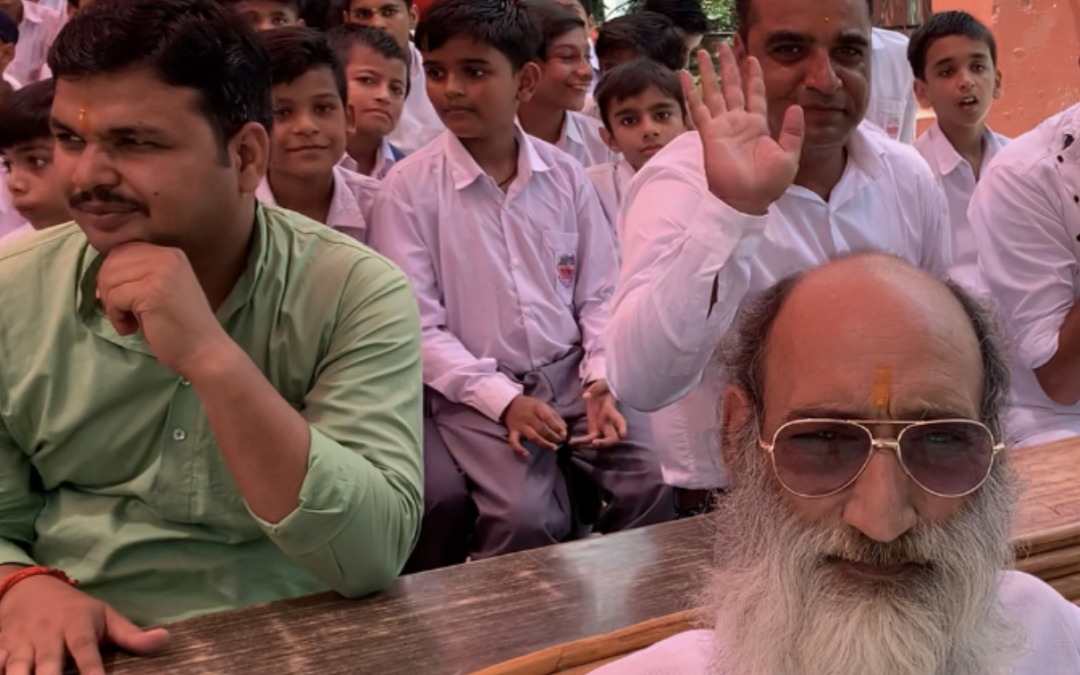
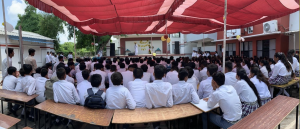 Teachers. They the light of the world.
Teachers. They the light of the world.